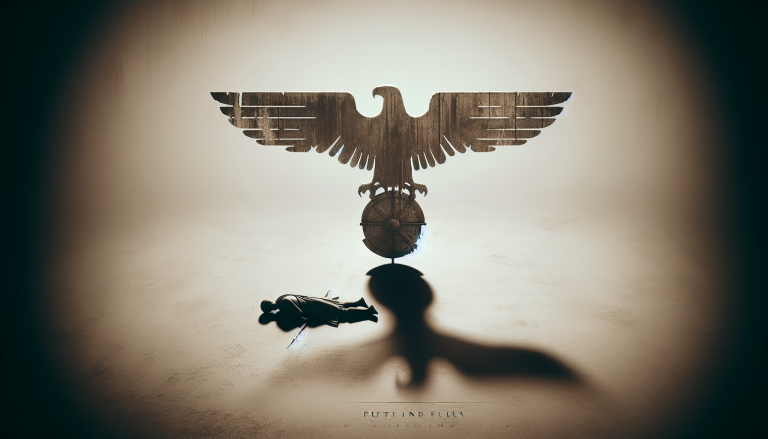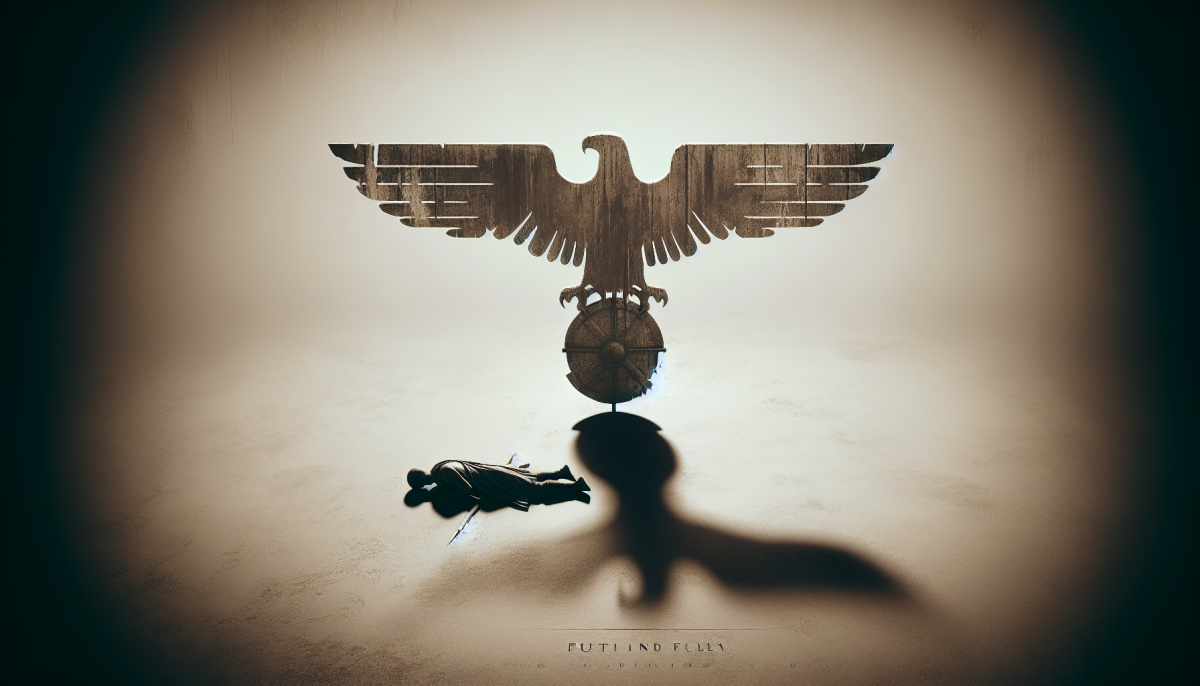The Siege of Alesia: When Caesar’s Legions Flogged a Deceased Equine
In the annals of history, few military campaigns can match the sheer futility and comedic absurdity of the Siege of Alesia, where Julius Caesar’s legions engaged in a classic case of “beating a dead horse.” This epic battle, which took place in 52 BC, stands as a testament to the human capacity for tenacity in the face of utter hopelessness.

The stage was set when the resilient Gallic chieftain Vercingetorix, cornered in the fortress of Alesia, decided to make a last-ditch stand against the might of the Roman Empire. Caesar, ever the shrewd tactician, quickly encircled the city with a series of elaborate fortifications, determined to starve the Gauls into submission.
What ensued was a masterclass in military blunders, as Caesar’s legions found themselves trapped in a bizarre and seemingly endless game of cat and mouse. Vercingetorix, with the cunning of a fox and the tenacity of a badger, repeatedly managed to slip through the Roman lines, launching daring sorties and harassing Caesar’s supply trains.
A Siege of Epic Proportions (and Epic Futility)
As the siege wore on, Caesar’s men found themselves in a quagmire of their own making, struggling to maintain their grip on the ever-elusive Gauls. The legionnaires, who had once marched across Gaul with the confidence of conquering heroes, now found themselves reduced to little more than glorified gardeners, frantically digging trenches and building walls in a desperate attempt to hold back the tides of Vercingetorix’s assault.
“It was as if the Romans were beating a dead horse, over and over again,” lamented one exasperated centurion, his voice dripping with sarcasm. “Every time we thought we had them cornered, those wily Gauls would slip through our fingers like water.”
The futility of the situation was not lost on Caesar himself, who is said to have been caught muttering, “Curse this endless dance! I’d have an easier time herding cats than keeping these Gauls in check.”
The Turning Point: When Laughter Trumped Valor
As the siege dragged on, the Roman soldiers, once the feared conquerors of the known world, found themselves the butt of countless jokes and jeers from the Gallic populace. Vercingetorix, ever the showman, would periodically emerge from the safety of Alesia’s walls, taunting the Romans with a series of comical displays.
“We’d see him up there, waving his sword and dancing around like a jester,” recounted one exasperated legionnaire. “It was as if he was daring us to come up and try to catch him. I’ll tell you, it took every ounce of my discipline not to just throw down my weapon and start laughing.”
The final blow to the Romans’ morale came when Vercingetorix organized a grand parade, complete with marching bands, jugglers, and even a troupe of trained bears, all of which proceeded to waltz through the Roman lines with impunity. Caesar, who had once struck fear into the hearts of his enemies, could only watch in disbelief as his legions, once the scourge of the ancient world, were reduced to the status of court jesters.
The Inevitable Conclusion: When Futility Triumphs over Valor
As the siege dragged on, Caesar’s legions found themselves increasingly demoralized and exhausted, their attempts to subdue the Gauls becoming more and more farcical with each passing day. The once-mighty Roman war machine had been reduced to a slapstick comedy, with the legionnaires stumbling around like a troupe of bumbling circus performers.
“It was as if the gods themselves were playing a cruel joke on us,” lamented one soldier, his voice tinged with resignation. “We’d spent weeks digging trenches and building fortifications, only to have the Gauls waltz right through them, laughing in our faces. It was enough to make a man want to throw down his sword and take up juggling instead.”
In the end, the Siege of Alesia stands as a cautionary tale of the dangers of stubbornness and the futility of beating a dead horse. Caesar, for all his military genius, had been outmaneuvered and outmaneuvered by the wily Vercingetorix, whose relentless and comedic resistance had reduced the mighty Roman legions to a laughingstock.
As the sun finally set on the siege, with the Gauls triumphant and the Romans licking their wounds, one could almost hear the echoes of Vercingetorix’s laughter, a testament to the power of humor in the face of even the most daunting of adversaries.
